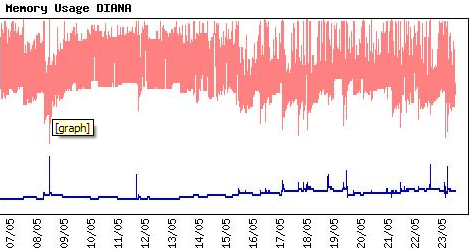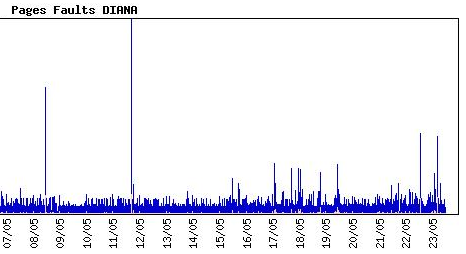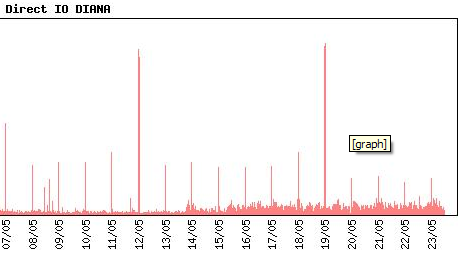Performance statistics
The OpenVMS bootcamp must have caused quite some load on Diana – MySQL crashed almost every two days with the known error: “not enough core”. Internet access was very, very slow at times but the hotel network was probably heavily loaded as well.
The web server usage statistics shows some increase, but due to the scaling of both output and number of accesses, it’s not that clear:

Regardless the exact cause – that needs to be determined using the T4 output of these days – it is more visible in the HyperSpy output:

Note the increment in CPU load from May 14th, and, foremost, May 18th, when the bootcamp really started.

memory load seems pretty much the same, but in detail, it’sfar more peaking then before – and page file usage – the spiky line below – almost doubled.

It looks rather flat – but that is caused by the spike on the left: a problem that at ties occurs with my Windows-based FTP client. With more detail, it’s notable that the number of processes is far more flat since May 18th.

As noted with the pagefile usage, the pagefault rate has gone up during the bootcamp – to be expected with an increasing number of processes and heavy database load.

By far most dramatic: Buffered IO. The only explanation I can give is the amount of data written to SYS$OUTPUT by the PHP engine that drives the blogs.

Because data comes off the disk, it’s obvious that the direct IO rate increased as well – tripled – during the bootcamp. (The high spikes mark the end-of-week processing on Monday, the low ones the end-of-day processing)
I expect that the load will drift to normal proportins in the week after the bootcamp. At that time I will be able to correlate all aspects of the system using T4 output.
